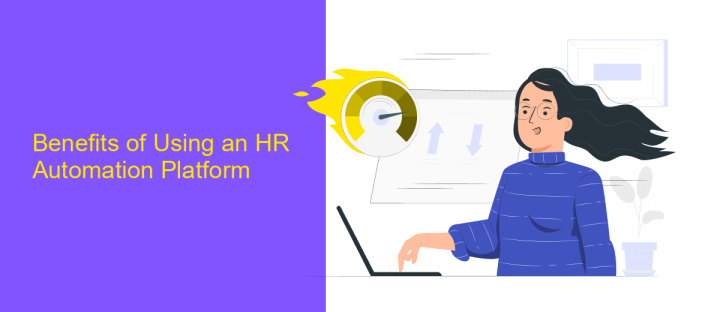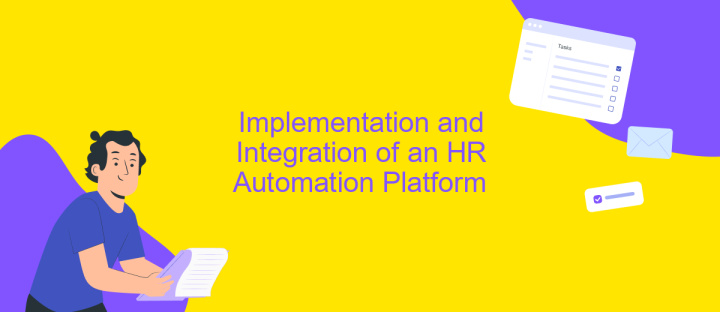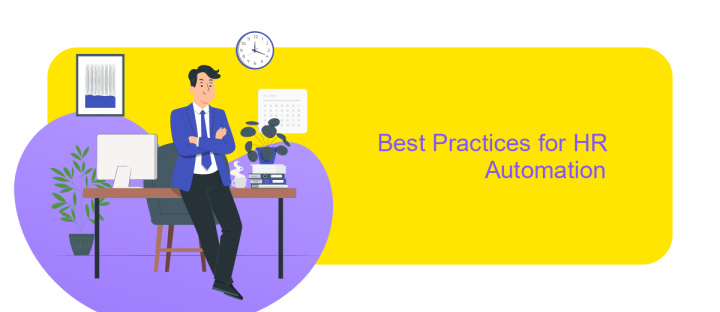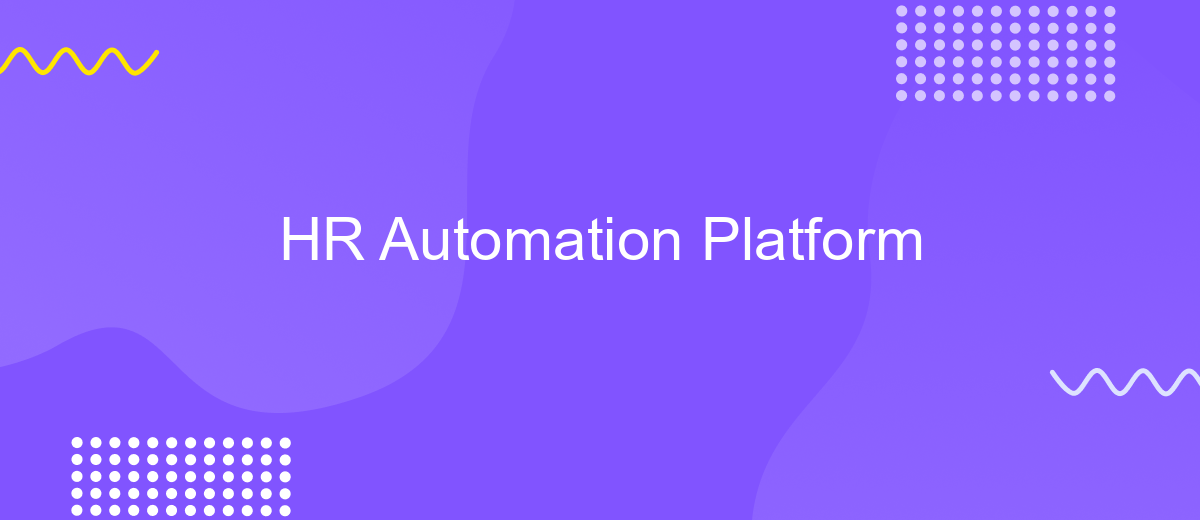HR Automation Platform
In today's rapidly evolving business landscape, the integration of HR automation platforms has become a game-changer for organizations striving to streamline their human resources processes. By leveraging cutting-edge technology, these platforms enhance efficiency, reduce manual workload, and improve decision-making, allowing HR teams to focus on strategic initiatives. This article explores the transformative impact of HR automation, highlighting key benefits and considerations for successful implementation.
Components of an HR Automation Platform
An HR automation platform is a comprehensive solution designed to streamline and optimize various human resource processes within an organization. By integrating advanced technologies, these platforms enhance efficiency, reduce manual workload, and improve overall employee experience. They serve as a centralized hub for managing HR tasks, enabling seamless communication and collaboration among team members.
- Recruitment Management: Automates job postings, candidate screening, and interview scheduling.
- Onboarding Automation: Simplifies the process of integrating new hires through digital forms and task lists.
- Payroll Processing: Ensures accurate and timely salary calculations and disbursements.
- Performance Tracking: Monitors employee performance metrics and facilitates feedback collection.
- Time and Attendance: Tracks employee work hours and manages leave requests efficiently.
- Employee Self-Service Portal: Empowers employees to access personal information and HR resources independently.
By incorporating these components, an HR automation platform not only enhances operational efficiency but also fosters a culture of transparency and engagement. This holistic approach enables HR professionals to focus on strategic initiatives, ultimately contributing to the organization's growth and success.
Benefits of Using an HR Automation Platform

Implementing an HR automation platform offers numerous benefits that streamline and enhance the efficiency of human resource processes. One of the primary advantages is the significant reduction in time spent on routine tasks, such as payroll processing, leave management, and employee onboarding. By automating these repetitive tasks, HR professionals can focus on more strategic initiatives, such as talent development and employee engagement, thus driving overall organizational growth. Furthermore, automation minimizes the risk of human error, ensuring greater accuracy and compliance with regulations.
Another key benefit is the seamless integration with other business systems, which enhances data flow and communication across departments. Platforms like ApiX-Drive facilitate these integrations, allowing HR systems to connect effortlessly with various applications, such as CRM and accounting software. This connectivity ensures that data is consistent and up-to-date, providing valuable insights for decision-making. Additionally, an HR automation platform improves employee experience by offering self-service portals, where employees can access information and manage their profiles independently, leading to increased satisfaction and productivity.
Implementation and Integration of an HR Automation Platform

Implementing an HR automation platform requires careful planning and execution to ensure seamless integration with existing systems. Organizations should start by conducting a thorough needs assessment to identify the specific HR processes that would benefit most from automation. This assessment helps in selecting the right platform that aligns with the company’s goals and technological infrastructure.
- Conduct a comprehensive needs assessment to identify key HR processes for automation.
- Select a platform that aligns with organizational goals and existing IT infrastructure.
- Develop a detailed implementation plan, including timelines and resource allocation.
- Ensure data migration is handled securely and efficiently to maintain data integrity.
- Train HR staff and stakeholders on the new platform to maximize adoption and efficiency.
Successful integration of an HR automation platform not only streamlines HR processes but also enhances data accuracy and accessibility. By leveraging automation, organizations can focus on strategic HR functions, such as talent development and employee engagement, ultimately driving business growth. Continuous evaluation and updates to the system ensure it remains aligned with changing business needs and technological advancements.
Best Practices for HR Automation

Implementing HR automation effectively requires a strategic approach to maximize its benefits. Start by identifying repetitive tasks that consume significant time and resources, such as payroll processing or employee onboarding. By automating these tasks, HR teams can focus on more strategic initiatives that contribute to organizational growth.
It's crucial to ensure that the chosen HR automation platform aligns with your company's needs and integrates seamlessly with existing systems. Conducting a thorough needs assessment and involving key stakeholders in the selection process can help in choosing the right tools that enhance productivity and efficiency.
- Prioritize user-friendly interfaces to encourage adoption among employees.
- Ensure data security and compliance with relevant regulations.
- Continuously monitor and evaluate the performance of automated processes.
- Provide training and support to staff for smooth transition and usage.
Regularly reviewing and updating automated processes is essential to keep up with technological advancements and changing business requirements. By following these best practices, organizations can leverage HR automation to streamline operations, reduce errors, and improve overall employee satisfaction.
- Automate the work of an online store or landing
- Empower through integration
- Don't spend money on programmers and integrators
- Save time by automating routine tasks
Future Trends in HR Automation
The future of HR automation is poised for transformative growth, driven by advancements in artificial intelligence and machine learning. These technologies are set to revolutionize recruitment processes, enabling more precise candidate matching and predictive analytics for employee retention. Additionally, the integration of AI-powered chatbots will streamline HR operations, offering 24/7 support and reducing administrative burdens. As organizations continue to embrace remote work, automation tools will play a crucial role in managing distributed teams, enhancing communication, and ensuring compliance with global regulations.
Another significant trend is the rise of integration platforms like ApiX-Drive, which facilitate seamless connections between various HR systems and applications. These platforms empower HR departments to automate repetitive tasks, such as data entry and report generation, allowing them to focus on strategic initiatives. Furthermore, the use of blockchain technology in HR automation is expected to enhance data security and transparency, particularly in areas like payroll and employee verification. As these trends continue to evolve, HR professionals will need to adapt and leverage these technologies to stay competitive in a rapidly changing landscape.
FAQ
What is an HR Automation Platform?
How does an HR Automation Platform improve efficiency?
Can an HR Automation Platform integrate with existing systems?
What are the benefits of using an HR Automation Platform for recruitment?
Is data security a concern with HR Automation Platforms?
Time is the most valuable resource in today's business realities. By eliminating the routine from work processes, you will get more opportunities to implement the most daring plans and ideas. Choose – you can continue to waste time, money and nerves on inefficient solutions, or you can use ApiX-Drive, automating work processes and achieving results with minimal investment of money, effort and human resources.


